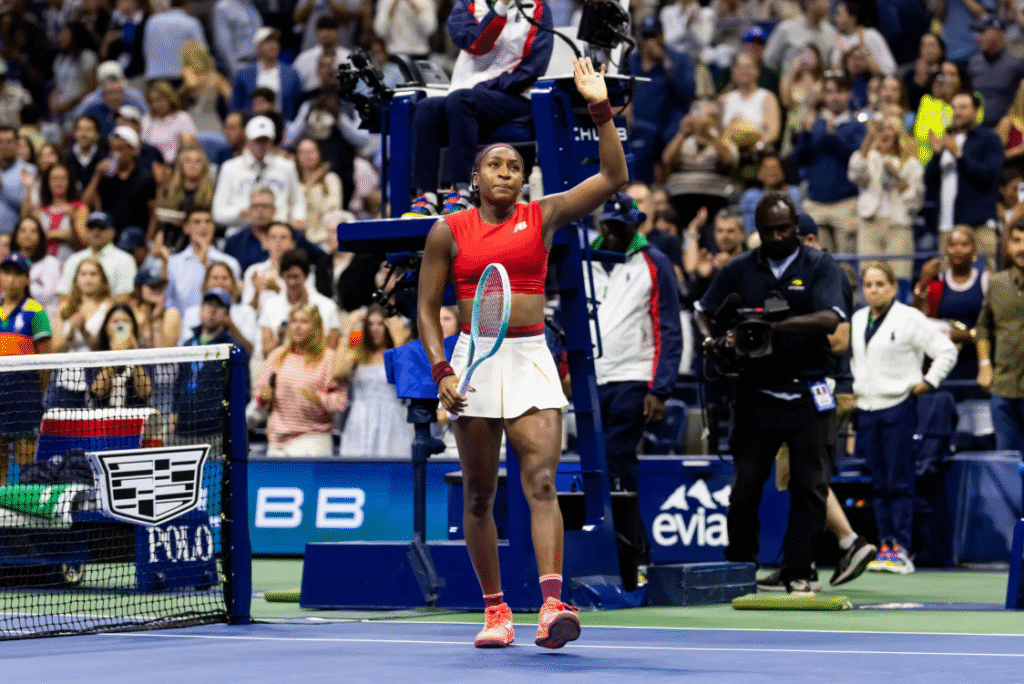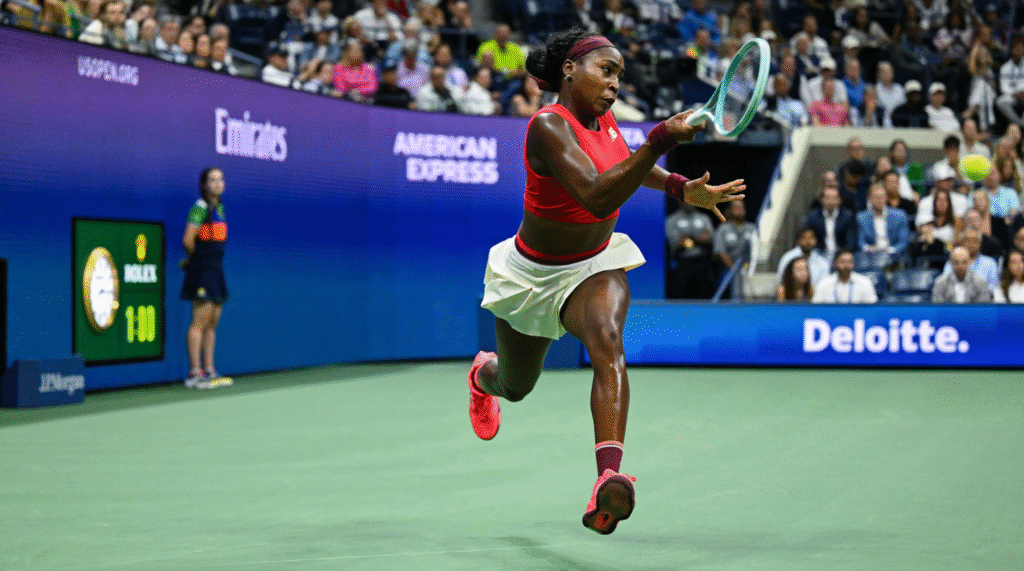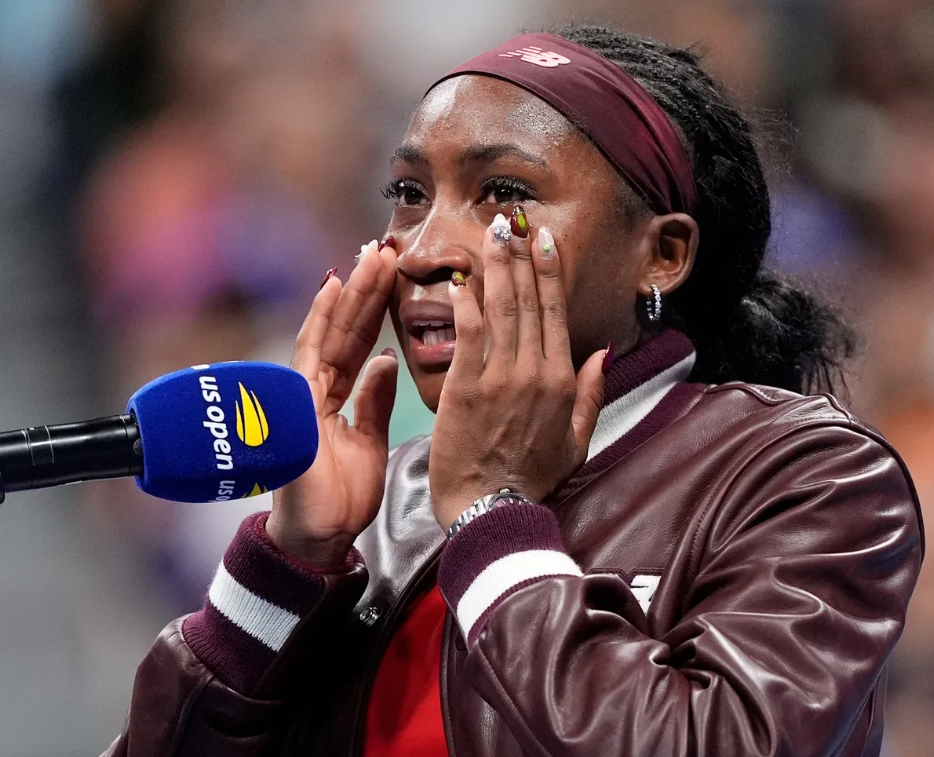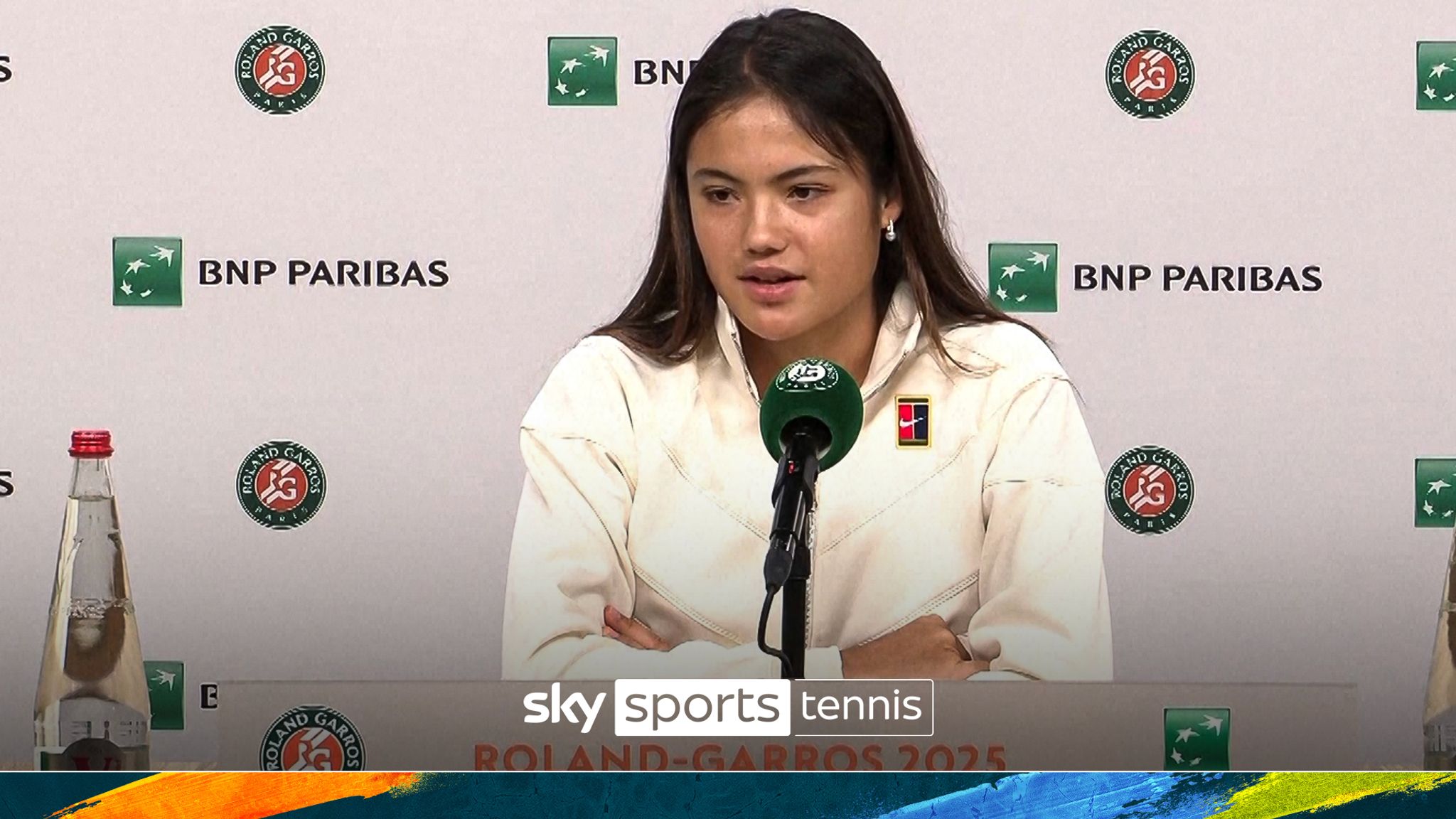
For Coco Gauff, Arthur Ashe Stadium has always been more than just a tennis court. It is the grandest stage in the sport, a place where history is written and legends are made. But on this particular night, under the bright lights of New York City, the 20-year-old American connected with the crowd in a way that went beyond forehands, backhands, and scorelines.
After a grueling second-round victory that tested her resolve both physically and emotionally, Gauff stood before thousands of fans and let them in on a truth that was as raw as it was uplifting: “You guys bring me so much joy.”
It was not just a post-match platitude. It was a reflection of what had unfolded on court, and a reminder of why Gauff has quickly become the emotional heartbeat of tennis in the United States.
A Battle on Court, A Battle Within
The match itself was a rollercoaster. Facing a determined opponent, Gauff was forced to dig deeper than she might have anticipated in the early rounds of a Grand Slam. From the start, she struggled to find rhythm, with unforced errors creeping into her usually reliable baseline game. Her opponent capitalized, pushing Gauff around the court and forcing her into uncomfortable defensive positions.

The tension was palpable inside Arthur Ashe Stadium. Each missed opportunity drew gasps from the crowd, while each rally win lifted them into thunderous applause. Gauff, visibly frustrated at times, looked to her team and even to the stands for energy.
But as champions often do, she summoned something extra when it mattered most. In the deciding moments, she steadied her game, found her first serve, and showed her trademark resilience. When the final point was won, she let out a roar—part relief, part triumph.
Yet it was what came after the match that truly defined the night.
“You Guys Bring Me So Much Joy”
Standing on court with microphone in hand, Gauff looked around Arthur Ashe Stadium as if trying to absorb the energy one last time before heading off. She smiled, waved, and then spoke words that were as heartfelt as any victory speech could be.

“You guys bring me so much joy,” she told the fans, her voice thick with emotion. The crowd erupted, many on their feet, appreciating the vulnerability and honesty of a young star who wears her heart on her sleeve.
It was more than gratitude—it was acknowledgment. Gauff was telling her fans that they are not passive spectators, but an active part of her journey. On nights like these, when the pressure mounts and the battle seems endless, the crowd’s energy matters.
The Weight of Expectation
At just 20 years old, Coco Gauff already shoulders a level of expectation most athletes spend careers avoiding. From her breakout win over Venus Williams at Wimbledon in 2019, she has carried the label of “the future of American tennis.”
That label is both a privilege and a burden. Every match she plays in the U.S., especially in New York, comes with an added layer of scrutiny. The fans want a hero. The media wants a storyline. The sport wants its next Serena or Venus.
And yet, what sets Gauff apart is her ability to balance those external pressures with a strong sense of authenticity. She does not shy away from acknowledging when she struggles—whether it’s with her game, her emotions, or the demands of being a public figure. Instead, she uses those challenges as points of connection.
Her words after the match—simple, honest, human—were proof of that balance.
Tennis as a Shared Experience
What made Gauff’s comments resonate so deeply is that they reframe the way we think about sports. Tennis, often portrayed as an individual pursuit, is not just about the player versus the opponent. It is about the connection between the player and the crowd, between the athlete and the community that supports them.
Arthur Ashe Stadium is infamous for being loud, rowdy, and unapologetically partisan. Some players wilt under that pressure. Gauff, instead, embraces it. She feeds off it. She transforms the stadium into her own living room, where every cheer feels like family encouragement and every chant of “Let’s go, Coco!” is a reminder that she is not alone.
In her victory speech, she made it clear that the fans are not just observers—they are part of her joy, her resilience, and her triumphs.
A Defining Trait of Champions
History is filled with champions who understood that greatness lies not just in titles, but in connection. Serena Williams had her iconic U.S. Open speeches. Roger Federer turned every Wimbledon Centre Court interview into a moment of gratitude. Rafael Nadal always reminded fans of how much their support mattered.
Coco Gauff is walking a similar path. Her ability to be vulnerable while still projecting strength is rare in athletes, especially at such a young age. In many ways, this emotional honesty might become one of her defining traits, as essential to her legacy as her backhand or her lightning-quick defense.
What Comes Next
For Gauff, the tournament continues. Each round will bring new challenges, tougher opponents, and higher stakes. The road ahead is never easy at a Slam, especially in New York, where the pressure cooker atmosphere can turn even the strongest players inward.
But after her second-round win, one thing is clear: she is not walking that road alone. She has the crowd with her, and she knows it. That knowledge might prove to be the hidden advantage that carries her further than ever before.
A Moment Bigger Than the Match
In the end, Gauff’s second-round victory will be remembered less for the scoreline and more for the emotion it carried. Her words—“You guys bring me so much joy”—captured not just a moment in time, but a truth about the unique bond between athletes and fans.
It is a bond that cannot be measured in rankings or trophies. It is about shared experiences, shared struggles, and shared triumphs. It is about a young woman growing into her role not just as a tennis star, but as an ambassador of joy, resilience, and authenticity.
Arthur Ashe Stadium has witnessed countless historic moments over the decades. On this night, Coco Gauff added her own, one defined not by dominance or perfection, but by gratitude, honesty, and connection.
And for the thousands who were there—and the millions who watched—it was a reminder that in tennis, as in life, the moments that matter most are often the ones that touch the heart.


